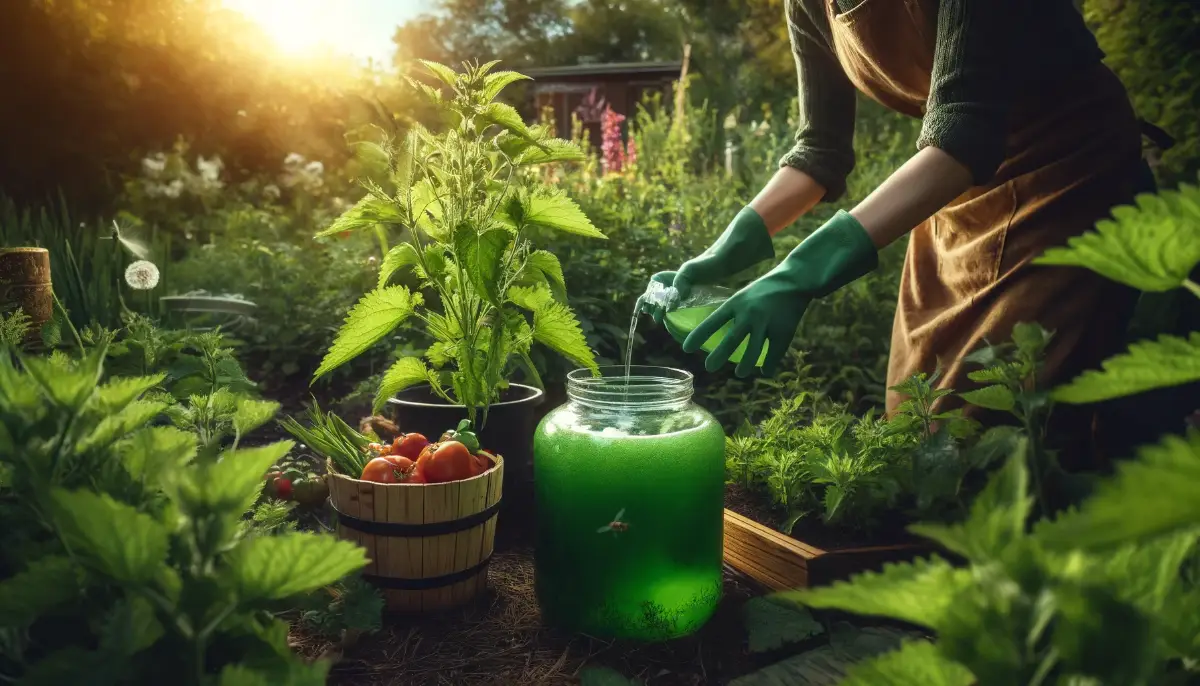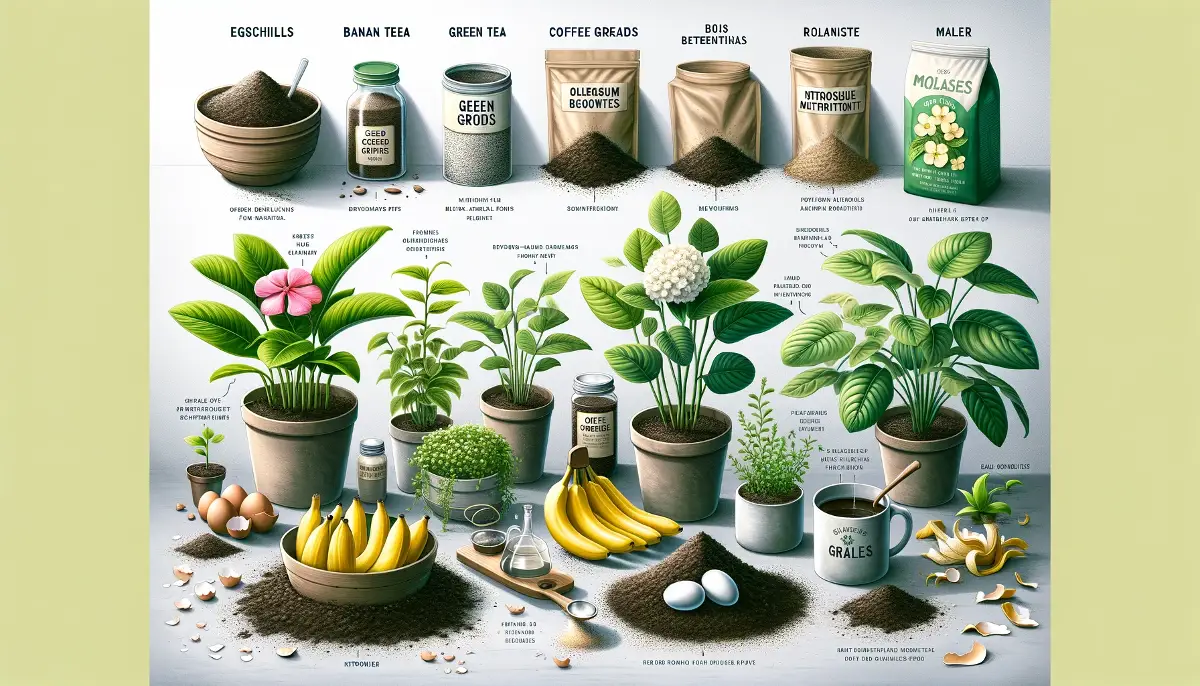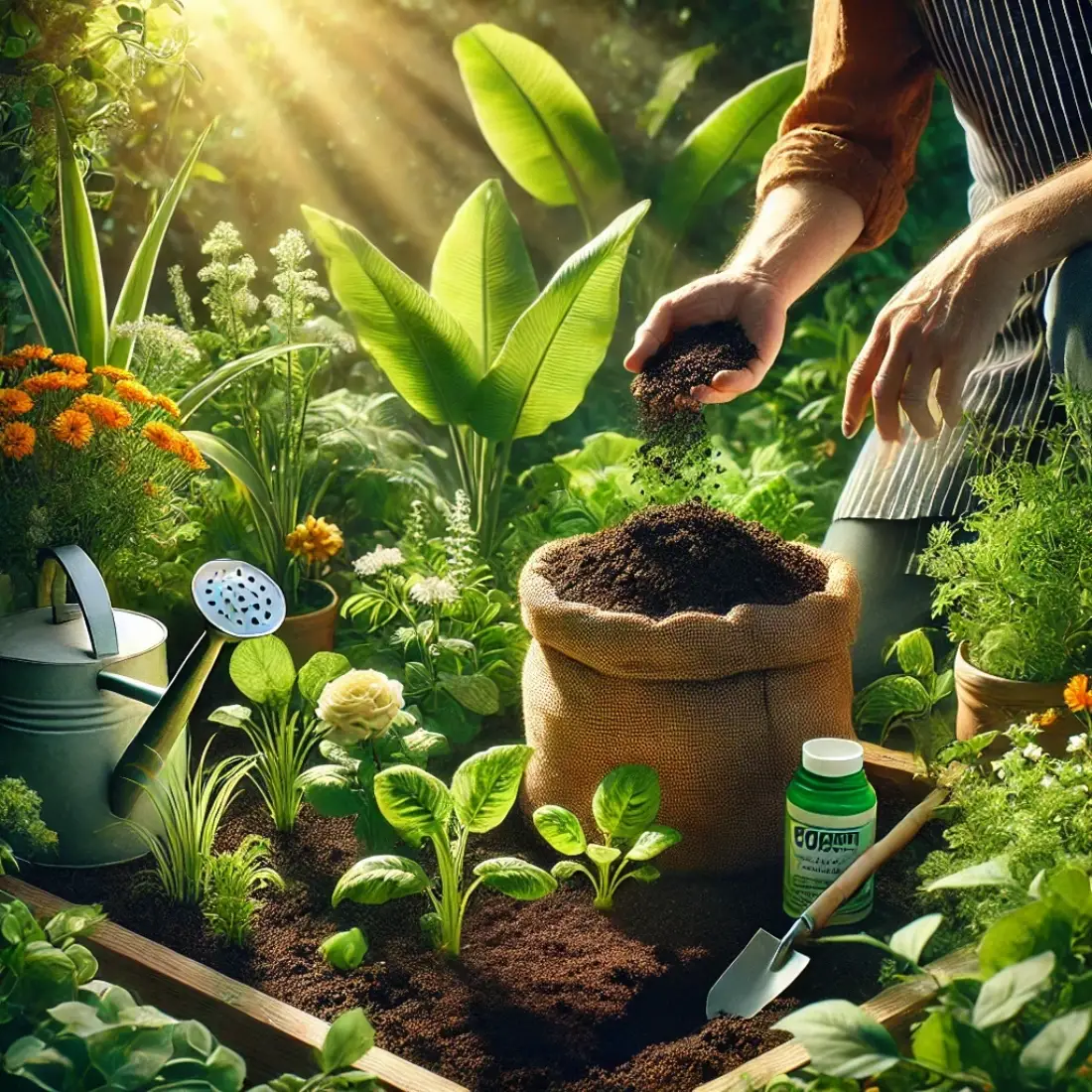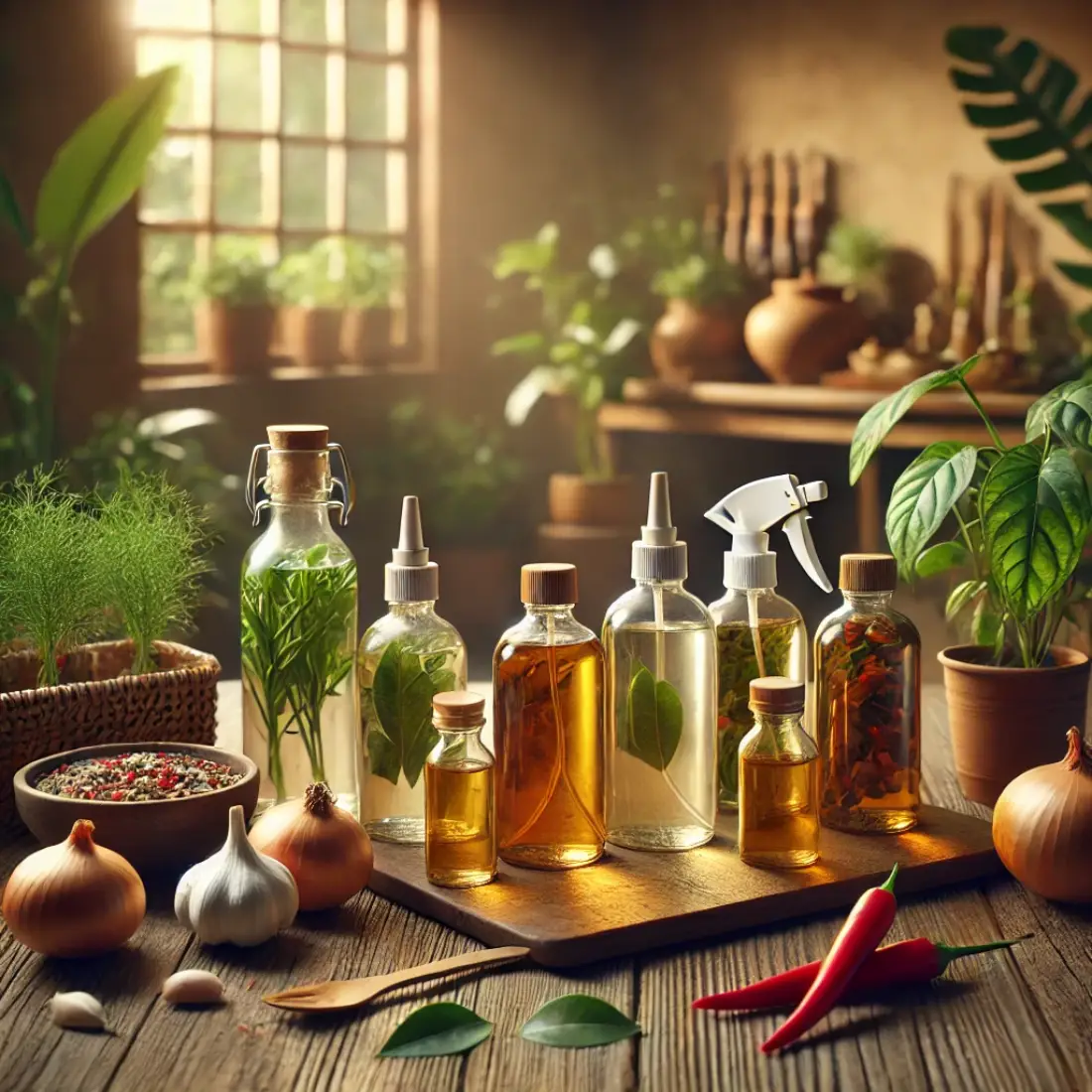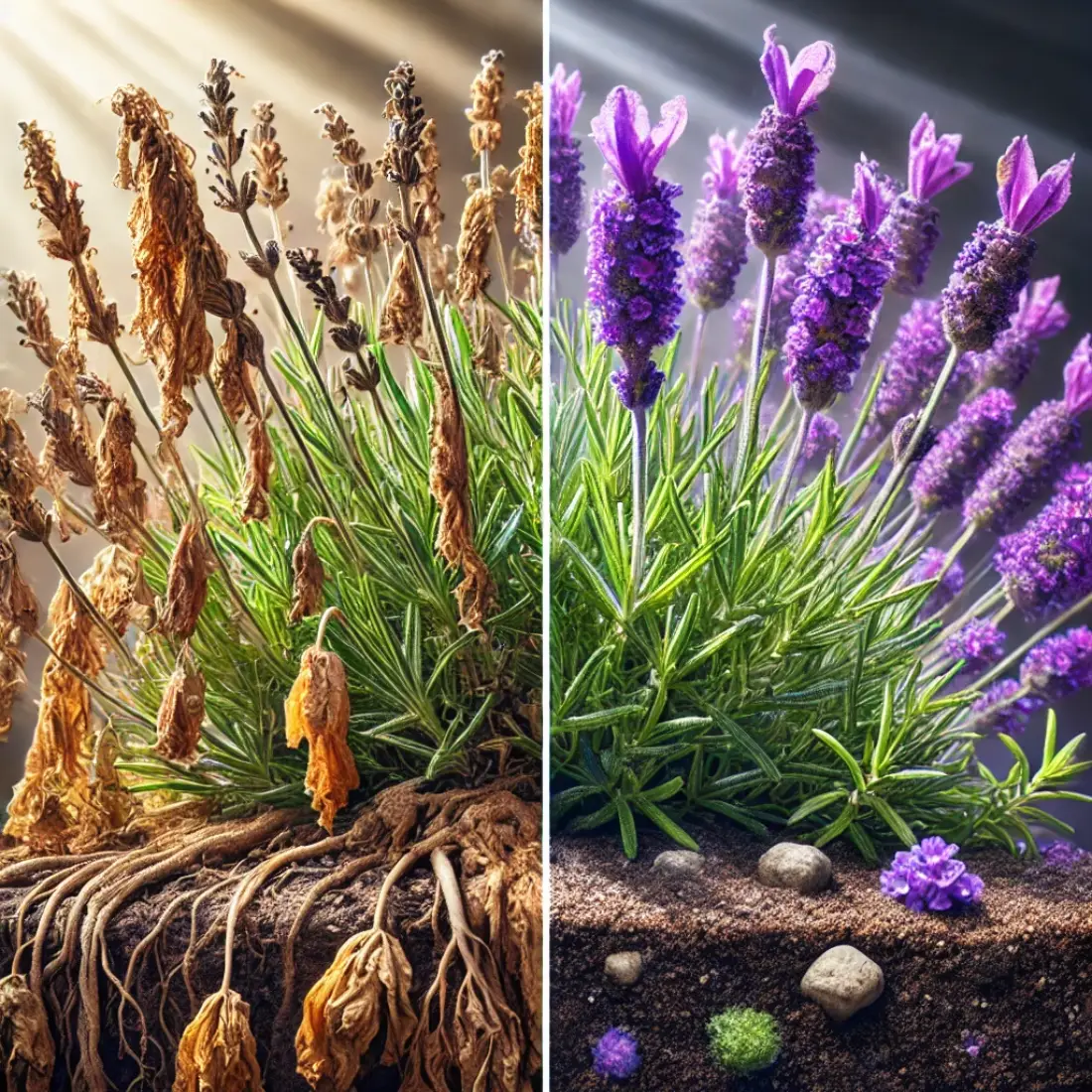Nettles, often dismissed as mere garden nuisances, hold a secret arsenal for organic gardening enthusiasts.
These resilient, leafy plants, commonly spotted with their telltale sting, are more than meets the eye. Beyond their initial unwelcome facade, nettles serve a dual purpose in the organic garden: as a potent organic fertilizer and a natural remedy against various plant diseases.
Why Nettles are Good for Your Garden
Rich in nitrogen, potassium, and other essential minerals, nettles can be transformed into a nutrient-packed fertilizer, nurturing plants from soil to bloom. The process of fermenting nettles into a “tea” or slurry unleashes their full potential, offering a sustainable, cost-effective solution for gardeners aiming to steer clear of chemical fertilizers.
This nettle-based concoction nourishes plants, enhancing their growth, health, and resistance to stress.
Furthermore, nettles play a crucial role in natural pest management. A concoction derived from nettles acts as a deterrent against common pests like aphids and mites, reducing the reliance on harmful pesticides. This same solution has shown promise in combating fungal diseases, bolstering plant defenses through improved immunity.
Incorporating nettles into compost piles can accelerate the breakdown process, enriching the compost with essential nutrients. This supercharged compost, when applied to garden soil, significantly enhances soil health and fertility, promoting the robust growth of a wide array of plants.
However, while nettles are undeniably beneficial, it’s important to approach their use with knowledge and caution. Certain plants may react negatively to the high nitrogen content, and specific methods must be followed to harness nettles’ benefits fully while avoiding potential pitfalls.
How to Prepare Nettle Fertilizer
Harvesting: For optimal potency, nettles should be collected before they bloom. Wearing gloves to avoid stings, cut nettles at the base and gather them in a container.
Fermenting Nettle Tea: The most common method of turning nettles into fertilizer is by fermenting them in water. This process involves submerging nettles in water (preferably rainwater for its softness and purity) in a container, covering it with a breathable cloth, and letting it sit for a couple of weeks.
The mixture should be stirred daily until it stops forming foam, indicating that fermentation is complete.
Dilution and Application: The resulting nettle tea is highly concentrated and must be diluted before use. A general guideline is to mix one part nettle tea with ten parts water. This diluted mixture can then be used to water plants or as a foliar spray, providing them with a nutrient boost and enhancing growth.
Benefits of Using Nettle Fertilizer
Nutrient-Rich: Provides essential nutrients directly to the plant’s root system, promoting healthy growth.
Stimulates Microbial Activity: Encourages the growth of beneficial soil microbes that aid in nutrient absorption and improve soil health.
Eco-Friendly: Utilizes a natural, readily available resource, reducing reliance on chemical fertilizers.
Precautions and Considerations
While nettle fertilizer is beneficial for many plants, it is high in nitrogen, which can be harmful to certain vegetables sensitive to nitrogen-rich fertilizers, such as root crops. It’s essential to use nettle fertilizer judiciously, avoiding over-application, to prevent nutrient burn and other negative effects.
In summary, nettle fertilizer is an effective, sustainable way to enrich garden soil and support plant health. Its preparation and use are straightforward, offering an organic solution to gardeners looking to optimize their plant care practices with minimal environmental impact.
Nettles as Natural Pest Repellent
Nettles can be used to create a natural repellent for common garden pests such as aphids and mites. A simple cold water extract or nettle decoction serves as an effective organic solution to deter these pests, safeguarding your garden without resorting to harsh chemical pesticides.
Preparing Nettle Pest Repellent: A cold water extract can be made by soaking coarsely chopped nettles in cold water for up to 36 hours. This solution, when sprayed onto plants, acts as a deterrent to pests, leveraging nettles’ natural defensive compounds to protect garden flora.
Nettles for Fighting Fungal Diseases
Nettles can also play a role in combating plant fungal diseases. The preparation and application methods vary slightly from those for pest control, with a stronger concoction often required for effective disease management.
Nettle Decoction for Disease Control: Boiling nettles in water and then diluting the cooled mixture creates a potent solution that can be applied to plants susceptible to fungal diseases such as blight or mildew. This method boosts plant immunity and resilience against fungal pathogens.
Benefits of Using Nettles for Disease and Pest Control
- Environmentally Friendly: Utilizing nettles as a pest and disease control method reduces the need for chemical treatments, aligning with sustainable gardening practices.
- Cost-Effective: Nettles are readily available and easy to process, offering an inexpensive alternative to store-bought remedies.
Application Tips
When applying nettle-based solutions for pest and disease control, consistency and timing are key. Regular application, particularly during the early stages of plant growth or at the first signs of pest activity or disease, can significantly enhance effectiveness.
Additionally, ensuring thorough coverage of the plant, including the undersides of leaves where pests often reside, is crucial for success.
Cautions
While nettle preparations are generally safe for most plants, it’s essential to test the solution on a small area first to ensure no adverse reactions occur. Moreover, adherence to recommended dilution rates is vital to avoid potential plant stress or damage.
In leveraging the natural properties of nettles for pest and disease control, gardeners can embrace a holistic, eco-friendly approach to maintaining plant health, minimizing reliance on synthetic solutions, and fostering a more resilient garden ecosystem.
FAQs on Using Nettles in Organic Gardening
Can nettles really improve my garden’s health?
Yes, nettles are beneficial for gardens, providing nutrients as a natural fertilizer and acting as a pest deterrent.
How do I make nettle fertilizer?
To make nettle fertilizer, submerge nettles in water and allow them to ferment for 1-2 weeks, then dilute the resulting tea before application.
Are there plants that shouldn’t be treated with nettle fertilizer?
Yes, plants sensitive to high nitrogen levels, such as some root vegetables and certain flowering plants, may not respond well to nettle fertilizer.
How does nettle help in pest control?
Nettle-based sprays can deter pests like aphids and mites, thanks to nettles’ natural properties.
Can I use nettles to fight fungal diseases in my garden?
Yes, nettle decoctions can be effective against certain fungal diseases by strengthening plant immunity.
How often should I apply nettle fertilizer to my garden?
Nettle fertilizer is typically applied every 2-3 weeks during the growing season, but frequency may vary based on plant needs and soil condition.
Is it expensive to use nettles in my garden?
No, using nettles is cost-effective since they can be foraged locally and processed with minimal equipment.
Can nettles be used on all types of plants?
While nettles are generally beneficial, it’s important to avoid using them on plants that are sensitive to their high nitrogen content.
How do I store leftover nettle tea or fertilizer?
Leftover nettle tea should be stored in a cool, dark place and used within a few weeks to maintain nutrient potency.
Are there any safety precautions I should take when handling nettles for gardening?
Yes, wear gloves to avoid stings when handling fresh nettles, and ensure proper dilution of nettle preparations before application to avoid harming plants

